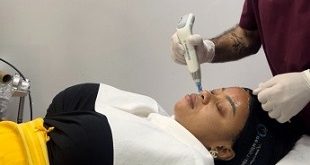
Kampala, Uganda | THE INDEPENDENT | The number of people who have received a COVID-19 vaccination now exceeds those reportedly infected, the head of the UN’s health agency said, while warning that after inoculating their own health workers and older people, countries must share doses with others, to eradicate the deadly coronavirus.
“In one sense, that’s good news, and a remarkable achievement in such a short timeframe”, World Health Organization (WHO) chief, Tedros Adhanom Ghebreyesus told journalists at a regular press briefing in Geneva on Friday. However, he noted that “more than three-quarters of those vaccinations are in just 10 countries that account for almost 60 per cent of global GDP”. This amounts to 130 countries, with 2.5 billion people, that have yet to administer a single dose.
Against the backdrop that some countries have even vaccinated some lower-risk populations, Tedros recognized that while all governments have an obligation to protect their own people, after inoculating their health workers and older people, “the best way to protect the rest of their own population is to share vaccines so other countries can do the same”.
On Wednesday, the UN-led coronavirus vaccine initiative COVAX published its distribution forecast for participating in States. Noting that “countries are ready to go, but the vaccines aren’t there”, Tedros again underscored the need for nations to share doses.
The joint UN-led COVAX initiative aims to start shipping about 90 million doses of COVID-19 vaccines to Africa in February, to roll out the continent’s largest-ever mass vaccination campaign. The initial doses will support countries to inoculate 3 per cent of the African population most in need of protection, including health workers and other vulnerable groups in the first half of 2021.
As production capacity increases and more vaccines become available, the aim is to vaccinate at least 20 per cent of Africans by providing up to 600 million doses by the end of 2021. The African Union has secured 670 million vaccine doses for the continent which will be distributed in 2021 and 2022 as countries secure adequate financing.
The Ugandan Ministry of Health announced earlier that it has placed an order for 18 million doses of the AstraZeneca Vaccine from the Serum Institute of India which will be used to vaccinate persons aged 50 and above, those with underlying health conditions, health workers, security personnel, and teachers, among other essential services providers.
The COVAX Facility, which is managed by the Global Alliance for Vaccines and Immunizations-GAVI, has already allocated 3.5 million doses of the AstraZeneca vaccine to Uganda, which are expected into the country by the end of the month.
Under the arrangement, each eligible Ugandan is expected to receive two doses of the vaccine, separated by 28 days. Each dose will cost USD 7(25,523 Shillings), which amounts to USD 14 (51,046 Shillings) per person. Another USD 3 (11,000 Shillings) is charged for international transportation and handling costs by the National Medical Stores, pushing the cost of the vaccine to USD 17 (62,000 Shillings).
Drawing attention to French pharmaceutical giant Sanofi’s announcement last week to make its manufacturing infrastructure available to produce the Pfizer/BioNTech vaccine, he called on other companies to follow their example.
“Companies can also issue non-exclusive licenses to allow other producers to manufacture their vaccine – a mechanism that has been used before to expand access to treatments for HIV and hepatitis C”, said the WHO chief.
The WHO chief also called on companies to “share their dossiers” with the UN health agency faster and more fully than they have been doing, “so we can review them for emergency use listing”.
********
URN
 The Independent Uganda: You get the Truth we Pay the Price
The Independent Uganda: You get the Truth we Pay the Price



